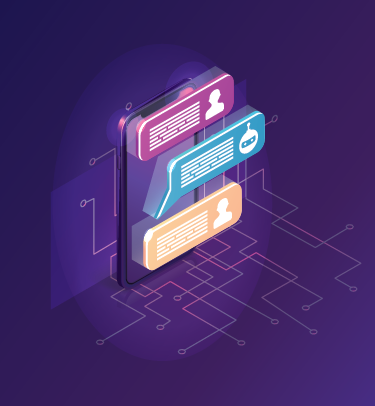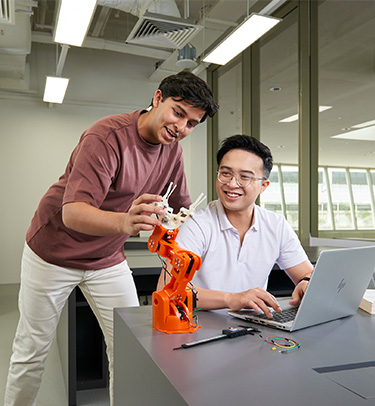If you haven’t heard of ChatGPT, you probably have been living under the rock. ChatGPT, or Generative Pre-trained Transformer, is a new chatbot that has become the hottest buzzword on the Internet after it was launched as a prototype on 30 November 2022.
Many working professionals and businesses have jumped on the bandwagon to use this latest Artificial Intelligence (AI)-based chatbot. What do you, as a student, need to know about ChatGPT? Here’s a short guide to help you get started.
Who Created ChatGPT?
ChatGPT is created by OpenAI, an AI research laboratory based in San Francisco, USA, in which Microsoft is one of its majority shareholders. OpenAI is also the creator of Whisper, which is an automatic speech recognition system, and DALL·E 2, an AI image and art generator.
How Does ChatGPT Actually Work?
ChatGPT is a recent invention in the field of generative AI, which has garnered significant funding from technology investors of late. Based on GPT-3.5, a language model that is trained to produce text on vast amounts of data from the Internet written by people, it rapidly gained attention for its accurate and detailed responses in many areas of knowledge and its keen ability to mimic real conversations based on a given prompt. You can simply type in your prompts or instructions for the AI chatbot to tell a story or answer a question, and it will respond in a human-like way with relevant answers. This makes ChatGPT very useful for many applications, such as language translation, dialogue systems and text summarisation.
How Can You Use ChatGPT?
Other than the examples mentioned above, ChatGPT can also be used for many other applications, including e-commerce, recruitment and customer service. For example, you can use it to interact with your customers online and provide more personalised customer experiences. You can also use it to brainstorm content ideas on keywords or topics, translate text from one language to another, or create email communications and responses.
Can ChatGPT Make Mistakes?
However, like any machine learning model, ChatGPT can make mistakes too. On its own FAQ page, OpenAI stated that the responses provided by the chatbot results from the system’s design that are based on the information it learned from programmes that trained data to generate responses, which may be inaccurate, harmful and misleading at times. This is also because it is not connected to the Internet and does not currently have knowledge of the world and events after 2021. ChatGPT may sometimes exhibit biases too because if the data that the chatbot is trained on is biased, the answers it generated will be biased too. So, you should be aware of this danger and be vigilant enough to monitor and fact-check the responses from ChatGPT for accuracy and timeliness. And since ChatGPT, as well as other AI tools for that matter, has the capability to produce false or misleading information and create convincing fake news articles, social media posts and other forms of misinformation, you should confirm the accuracy of such information before you use it in any piece of schoolwork.
On another note, as ChatGPT becomes more sophisticated, it may be difficult for you to distinguish between a chatbot and a real person if you are talking to someone online, which could lead to confusion and mistrust. Be very careful, and talk to a teacher, lecturer or a counsellor if there is a need for verification.
What Other Concerns Should You Have Regarding ChatGPT?
You should use ChatGPT only as a tool to enhance your research and content with thorough fact-checking, and you should not rely primarily on it for content creation. Like any other technology, it is your responsibility to use ChatGPT ethically, as there have been increasing concerns around ethical considerations and impacts on society with increased use and reliance on such AI systems.
OpenAI is working on a tool to attempt to watermark its text generation systems in order to combat academic plagiarism and spam. It is also building software that can detect whether text was generated by ChatGPT. Moreover, there are many other anti-cheating software to detect content generated by ChatGPT. These concerns might be critical for you to consider if you are looking to use it in any schoolwork.
In addition, if you are someone who is strongly concerned about your privacy, do note that the OpenAI team can view your conversations on ChatGPT. On its website, it is stated that the company reviews conversations in order to improve their systems and also ensure that the content complies with their policies and safety requirements.
Is ChatGPT Free to Use?
ChatGPT was launched as a free tool to the public initially as a trial, but according to Sam Altman, the CEO of OpenAI, the costs of maintaining the system are astronomically high, and in order to ensure its long-term viability, the company has already rolled out a premium subscription plan.
Summary
Besides ChatGPT, there are many exciting developments to anticipate in the future of AI, including robotics, deep learning, reinforcement learning and AI-quantum computing. You should be aware of how these technologies will impact you in your education. In particular, you should be concerned about the chatbot on an ethical front, as there may be potential for misusing it to generate hate speech, harassment or other offensive communication materials. You should also be aware of the potential risks associated with any AI language generation models, such as ChatGPT, and be critical of any such information you receive online.
If you are interested to further your interest in this field, you can check out the Bachelor of Engineering Honours in Robotics and Artificial Intelligence by the University of Hertfordshire, which has a strong emphasis on practical work to build your skills in the usage and application of robotics and AI technologies.




 TOP
TOP



_2.png)

